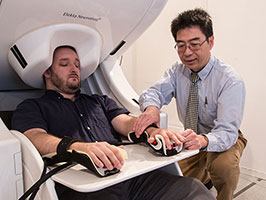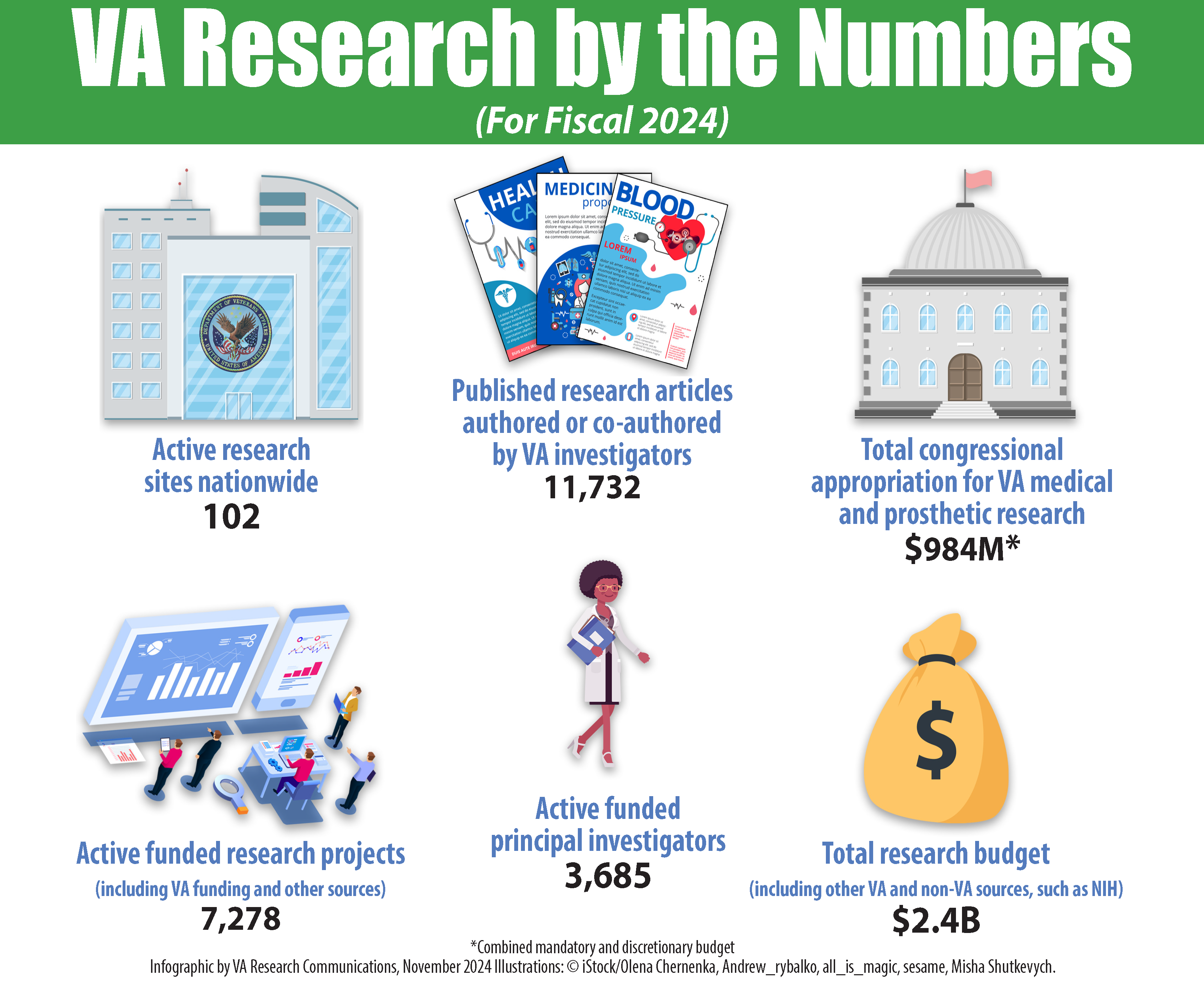Office of Research & Development |
 |
For more than 95 years, the Veterans Affairs (VA) Research and Development program has been improving the lives of Veterans and all Americans through health care discovery and innovation.
The mission of VA Research is fourfold:

Dr. Mingxiong Huang prepares to do a MEG brain scan on a "healthy control" who has participated in his neuroimaging research. (Photo by Kevin Walsh)
VA Research is unique because of its focus on health issues that affect Veterans. It is part of an integrated health care system with a state-of-the-art electronic health record and has come to be viewed as a model for superior bench-to-bedside research.
Today, VA Research has three overarching strategic priorities: increasing Veterans' access to high-quality clinical trials; increasing the real-world impact of VA research and putting VA data to work for Veterans.
The research process in VA starts with a tight focus on the everyday health needs and concerns of Veterans, and with consultation with national and regional VA clinical leaders. Solutions are identified and developed through careful, rigorous research in labs and clinics, and sometimes in the community. These solutions are then applied to patient care, or translated into new or improved programs, as rapidly as possible. Veterans themselves play an integral role in the VA research program. Thousands of VA patients volunteer each year to participate in VA research studies, both to address their own health challenges and to help their fellow Veterans, now and in the future.
VA Research has had three Nobel prize-winners in its ranks, along with recipients of seven Lasker awards and numerous other national and international honors. A majority of VA researchers also provide direct patient care within the VA system, giving them firsthand insight into Veterans' health needs.
VA Research fosters dynamic collaborations with its university partners, other federal agencies, nonprofit organizations, and private industry—thus furthering the program's impact on the health of Veterans and the nation.
